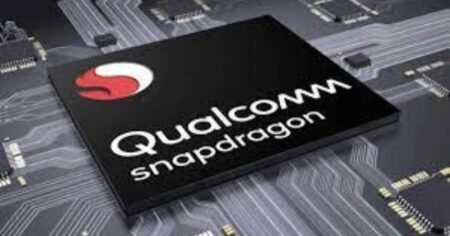
An unlocked CPU is a central processing unit that allows the user to manually alter the clock speeds or you can say that it can be overclocked. It is also known as an “unlocked processor” or simply a “K-series” (for Intel) or “Black Edition” (for AMD) CPU. The name “unlocked” tells that the multiplier on these CPUs has been unlocked, which is critical in setting the CPU’s clock speed. Most CPUs, on the other hand, have a locked multiplier, which means you can’t easily alter the multiplier to boost the clock speed over the manufacturer’s specifications.
Overclocking increases the clock speed of a CPU or GPU to improve performance. Overclocking an unlocked CPU involves modifying settings in the BIOS or UEFI firmware of the motherboard to boost the CPU’s clock speed and other characteristics. The main advantage of an unlocked CPU is that it provides advanced users and enthusiasts more control over the performance of their system. This can lead to better performance in CPU-intensive tasks like gaming or complex content creation.
This can result in improved performance but generates more heat; therefore, suitable cooling measures are required to avoid overheating. Furthermore, pushing a CPU too far might result in system instability, crashes, or even CPU damage if not done carefully. It’s crucial to note that overclocking can violate warranties and cause stability difficulties or damage to the CPU if done incorrectly. As a result, it’s typically advised for advanced users who understand computer hardware and are ready to assume the risks that come with it.
In this post, we will address your concerns and offer you the knowledge you need to make an informed decision. By the end of this, you will have a good grasp of the differences between an unlocked CPU and a locked CPU and a comparison of various CPU possibilities, allowing you to decide the best fit for your needs.
CPU clock speed:
The CPU clock speed is determined by a clock signal provided by a crystal oscillator on the motherboard. This clock signal synchronizes the CPU’s and other computer components’ operations. The clock speed directly influences how quickly a CPU can execute instructions. Each clock cycle corresponds to one essential operation or instruction. As a result, a faster clock speed generally means that the CPU can complete more instructions in a given period, resulting in faster performance.
Higher clock speeds often result in higher performance, especially in CPU-bound workloads like gaming, video editing, and 3D rendering. Faster clock speeds allow the CPU to execute computations and data processing quickly.
Limitations:
While increasing clock speed can improve performance, it has some drawbacks. As clock speeds grow, so do the CPU’s power consumption and heat generation. This can cause heat concerns, necessitating more advanced cooling methods to ensure steady operation.
Modern CPUs frequently contain many cores, each with its clock speed. The combined processing power of all cores contributes to overall performance in multi-core CPUs. It’s crucial to note that clock speed alone does not provide a whole picture of a CPU’s performance. CPU architecture, cache size, and other characteristics all impact how efficiently the processor can execute instructions. Real-world performance can vary when comparing CPUs with the same clock speed but different designs.
Some CPUs provide dynamic clock speed adjustment, often known as Turbo Boost (for Intel) or Precision Boost (for AMD). These let the CPU momentarily increase its clock speed for intensive tasks, then drop it for idle or less demanding operations to save power.
Turbo vs overclocking:
Modern Intel i5 and i7 processors include two clock rates in their specifications, such as “3.4 GHz, up to 3.8 GHz.” This increased speed results from the Turbo Boost technology built into these processors. While it is similar to overclocking, Turbo Boost acts differently and is not the same as manual overclocking. Turbo Boost is a fully automated and smooth mechanism built into the CPU. When the CPU recognizes a need for more processing power, it briefly raises its clock frequency over the base clock frequency. If a CPU has a base clock speed of 3.4 GHz and a Turbo Boost frequency of 3.8 GHz, it can automatically boost its performance to 3.8 GHz when needed, providing a performance boost without human intervention.
It’s worth noting that Turbo Boost isn’t limited to unlocked “k” processors. It is a function offered on various Intel CPUs that boosts their performance dynamically and effectively when tasks require it. Users usually do not need to configure or enable Turbo Boost; it functions automatically within the CPU’s heat and power restrictions.

How to Determine Whether A CPU Is Locked or Unlocked?
Determining whether a CPU is locked or unlocked is simple, although the approach differs depending on whether you’re looking at Intel or AMD processors:
For Unlocked Intel CPUs:
Look for the letter “K” at the end of the model number. For example, an Intel CPU with a model number such as “i7-9700K” or “i9-11900K” includes the “K” designation, indicating that it is unlocked and can be overclocked. Furthermore, some Intel CPUs may have “KF” or “HK” designations at the end of their model numbers. These designations also denote unlocked CPUs that can be overclocked.
For AMD Unlocked CPUs:
Unlike Intel, AMD Ryzen CPUs are all default unlocked. To establish if an AMD Ryzen CPU is unlocked, you don’t need to look for special designations or letters at the end of the product number. All Ryzen CPUs, whether low-cost Ryzen 3, high-end Ryzen 9, or Ryzen Threadripper, can be overclocked.
You may also see some Ryzen models having an “X” designation at the end of the model number, such as “Ryzen 5 5600X.” However, the “X” designation in AMD’s Ryzen naming scheme does not indicate whether the CPU is unlocked. It often denotes slightly higher clock speeds than “non-X” variants, but all AMD CPUs can be overclocked.
Is It Possible to Unlock a Locked CPU?
Unlocking a locked CPU to remove physical limits imposed during manufacturing is impossible. Clock multipliers and other settings on locked CPUs are locked at the hardware level, and these constraints cannot be unlocked with software.
However, locked CPUs can be overclocked to a certain extent on specific non-K or non-X series CPUs by altering their base clock speed (BCLK overclocking). Although BCLK overclocking can improve CPU performance, it is not without limitations. Typically, overclocking, including BCLK overclocking, produces more heat. Improving cooling methods may be required to prevent overheating when overclocking a locked CPU.
Overclocking a locked CPU beyond its default settings can cause instability. If not done carefully, it might lead to system crashes or instability. However, these solutions are not suggested for most users because they can cause problems. While BCLK overclocking can boost performance, it is often not as significant as what can be achieved with an unlocked CPU. Unlocked CPUs, which let you change the multiplier, provide more substantial performance benefits.
Difference between Unlocked CPU and locked CPU:
The main difference between a locked and an unlocked CPU is the ability to overclock and customize it. Here’s a rundown of the significant distinctions.
Locked CPU:
- Overclocking Restriction: You cannot overclock a locked CPU. You cannot override the manufacturer’s standards for clock speed, power, core count, voltage, and other performance-related characteristics.
- Limited Customization: You cannot utilize the CPU manufacturer’s preset settings with a locked CPU. The CPU’s performance settings can be changed or fine-tuned with little flexibility.
- Stability: Because locked CPUs function inside their prescribed parameters, they are often more stable. They are appropriate for those who prefer a reliable and trouble-free computing experience without overclock.
Unlocked CPU:
- Overclocking Freedom: An unlocked CPU allows for overclocking. To push the CPU’s performance beyond factory limits, you can manually alter variables such as clock speed, power, core count, etc.
- Extensive Customization: Unlocked CPUs allow consumers to customize and fine-tune performance settings to fit their needs. This adaptability is particularly appealing to enthusiasts and power users.
- Overclocking Potential: Unlocked CPUs frequently have more significant overclocking potential, resulting in considerable performance, particularly in workloads that benefit from higher clock speeds, such as gaming and content creation.
Is there a difference in performance between locked and unlocked CPUs?
When both CPUs run at their default settings, there is no discernible performance difference between locked and unlocked CPUs. The base performance of two CPUs of the same model and generation will be the same, whether locked or unlocked. The intrinsic performance differential between different CPU models in a manufacturer’s lineup has nothing to do with whether a CPU is locked or unlocked. For example, regardless of their locking status, an Intel Core i5 CPU will generally outperform an Intel Core i3 CPU.
An unlocked CPU’s most significant advantage is its overclocking ability. Overclocking an unlocked CPU allows you to manually boost its clock speed, potentially resulting in improved performance in tasks that benefit from increased CPU speed, such as gaming and content creation. With locked CPUs, this performance improvement is not accessible.
CPU manufacturers frequently lock lower-end CPUs to prevent consumers from overclocking them. Overclocking on CPUs that do not meet the same performance and stability standards as higher-end versions might cause instability or performance concerns. Choosing between a locked and unlocked CPU depends on your needs and preferences. If you do not intend to overclock and are satisfied with a CPU’s stock performance, a locked CPU may be a more cost-effective option. In contrast, an unlocked CPU may be more suitable if you want the freedom to overclock and attain higher performance.
Frequently Asked Questions
What is an unlocked Intel CPU?
Intel is a significant player in the CPU sector, producing a wide range of CPUs. Intel makes locked CPUs to assure steady and functional performance. Overclocking can boost CPU performance but can also cause instability and damage. Intel locks CPUs to prevent this. Unlocked CPUs are available for skilled users, particularly gamers who understand overclocking and have adequate systems. Most PC builders prefer locked CPUs for simple operation without overclocking.
An unlocked Intel CPU is a central processor unit that allows users to exceed the manufacturer’s requirements by modifying performance-related variables, such as clock speed and voltage. This customization has the potential for increased performance, but it takes skill and appropriate cooling systems to maintain stability. Unlocked Intel CPUs are frequently preferred by enthusiasts and gamers who want maximum performance from their systems and are willing to take on the dangers and challenges of overclocking.
What is an unlocked multiplier on CPU?
An unlocked CPU multiplier, often known as an “unlocked CPU” or “unlocked processor,” is a central processing unit that allows users to change the clock multiplier settings of the CPU. The clock multiplier determines the CPU’s final operating frequency or clock speed.
The clock multiplier in a locked CPU is fixed, and users cannot adjust it beyond the manufacturer’s specified value. On the other hand, the clock multiplier in an unlocked CPU is not limited, allowing users to increase or reduce it as desired manually.
Unlocking the multiplier gives you more options for overclocking, which is running the CPU at a faster clock speed than it is set to by default. Overclocking can increase performance in CPU-intensive tasks such as gaming and specific content creation programs.
Overclocking enthusiasts and power users prefer unlocked multiplier CPUs because they provide more precise and effective control over the CPU’s performance settings. Overclocking, however, can result in more significant heat generation and potential stability difficulties; therefore, suitable cooling solutions and caution are required while chasing higher clock rates.









